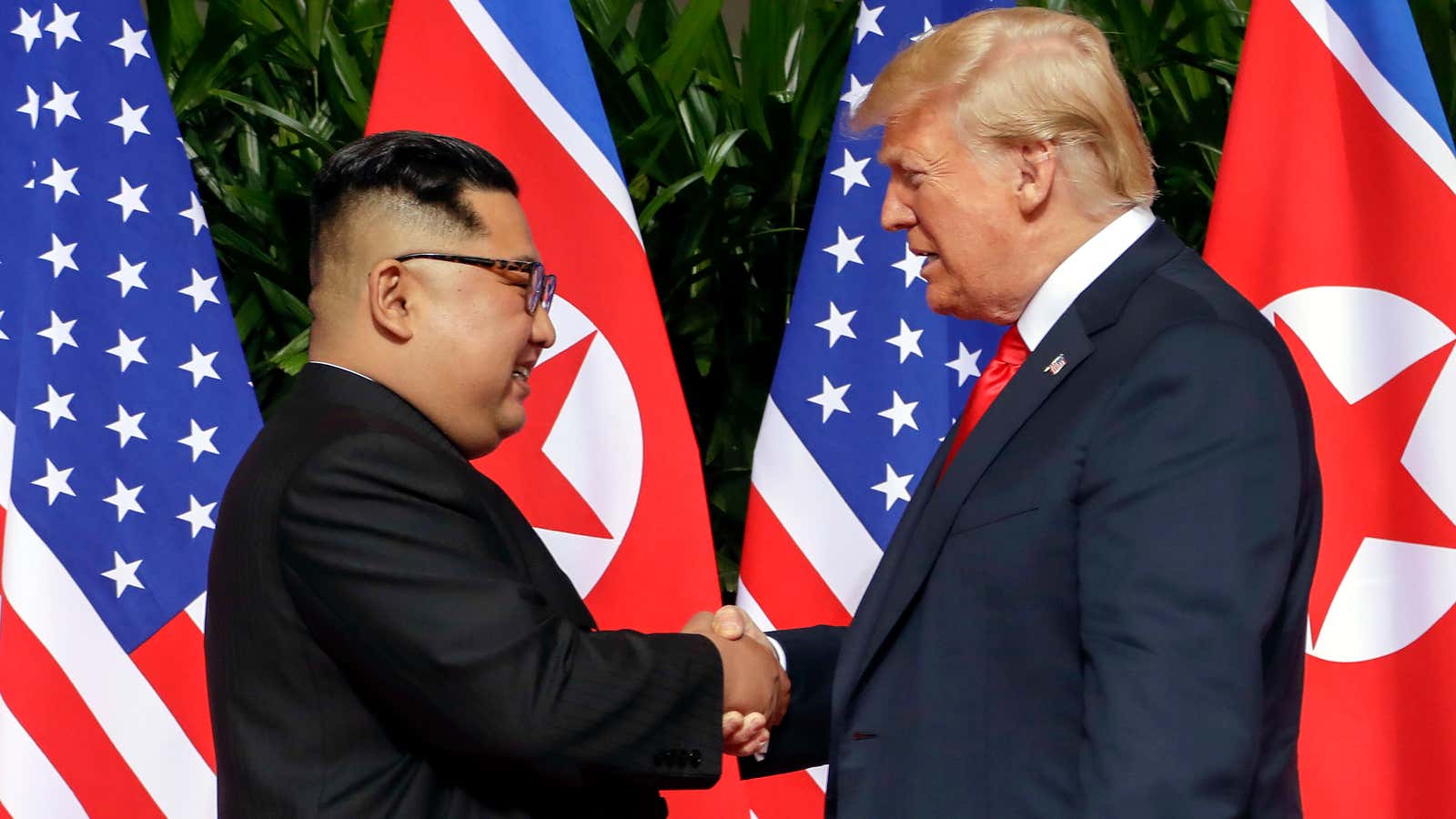Donald Trump’s promised “very productive summit” with Kim Jong Un collapsed before the two leaders even got to lunch today (Feb. 28) —despite the fact that the White House had gone as far as planning a signing ceremony for the afternoon.
Was the reason last-minute demands from national security advisor John Bolton, new demands from an increasingly confident, nuclear-armed North Korean leader, or US unwillingness to accept a “realistic proposal”?
Right now, the answer depends on who you talk to.
The entire summit has been bad for Trump’s reputation at home and abroad, while costing US taxpayers millions.
It didn’t have to be this way. A fundamental problem with US foreign relations now is Trump’s personal brand of “let’s make a deal” diplomacy. His administration has often ignored the nitty-gritty and often arduous process of hammering out lower-level agreements ahead of major meetings, and shuns experienced diplomats and trade negotiators in favor of his gut instincts, foreign policy experts say.
Doing more homework ahead of time—to map out Kim’s bottom-line demands on relinquishing his nuclear weapons and to convey what the US was absolutely unwilling to give in return—would have saved Trump from this high-profile failure.
“The lack of working-level talks in the lead up to the Hanoi summit undermined the chances of reaching a successful deal,” said Edward Markey of Massachusetts, the ranking Democrat on the East Asia subcommittee of the Senate Foreign Relations Committee.
The quick collapse of talks “underscores that this summit wasn’t ready for prime time,” said Eliot Engel of New York, House Foreign Affairs Committee chair. “Clearly, North Korea isn’t yet ready to commit to meaningful steps toward denuclearization, and the White House rushed prematurely into another presidential summit,” he said, while calling for the end of Trump’s “pageantry and photo-ops.”
Michael Fuchs, former deputy deputy assistant secretary of state for East Asian and Pacific Affairs in the Obama administration, labeled the summit “diplomatic amateur hour” and called for an end to “reality-TV summitry.”
The Trump administration, for its part, is blaming the deal’s collapse on the unpredictable nature of an administration run by a man who consolidates power at the top (US officials here mean Kim, not Trump).
“We cleared away a lot of brush over the past, apparently, 60, 90 days at the working level, then we were hoping we could take another big swing when the two leaders got together,” US secretary of state Mike Pompeo said when asked about the “pluses and minuses” of dealing with fundamental issues on the leader level.
“When you’re dealing with a country that is the nature of North Korea, it is often the case that the most senior leaders have the capacity to make those important decisions,” Pompeo said, adding that “there was a lot of preparatory work” and that diplomats would “get right back at it” tomorrow.
